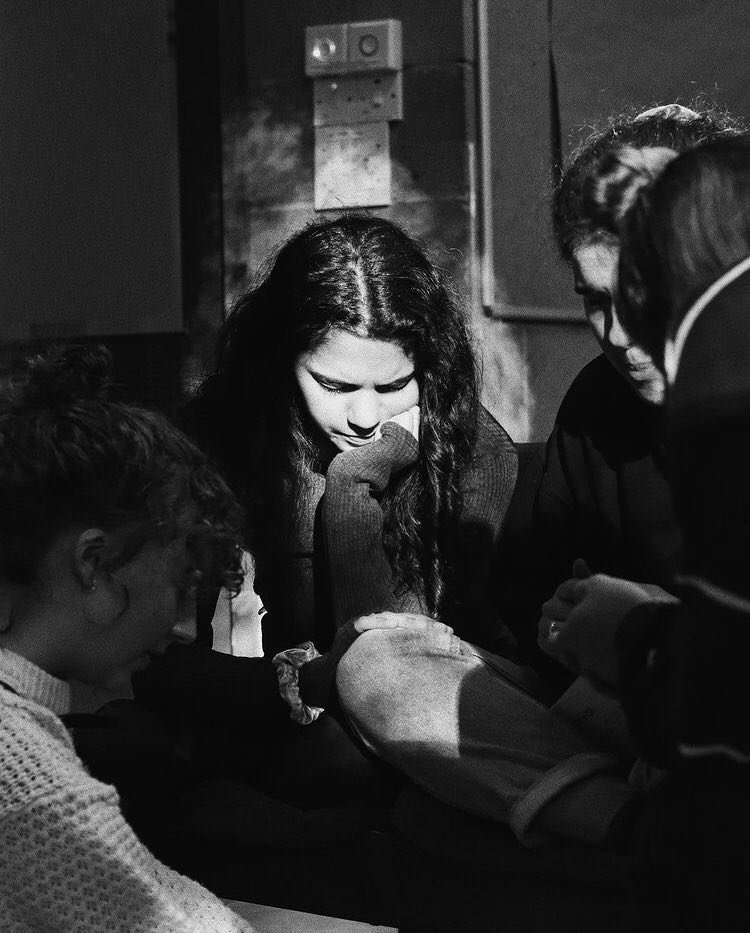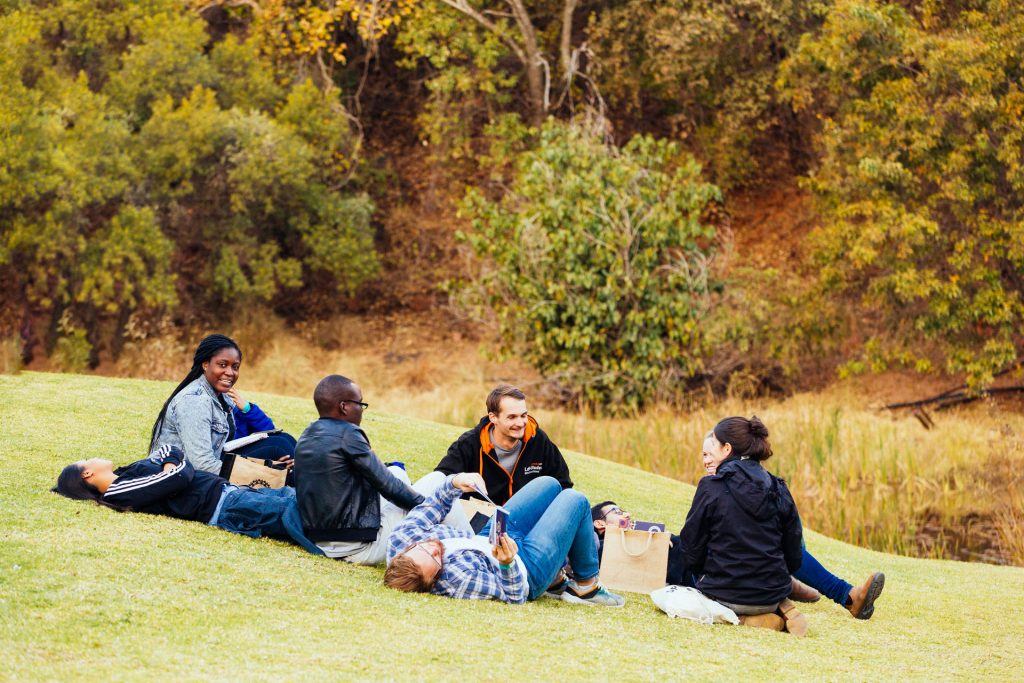
A BETTER BANQUET FOR ALL
Perspectives on student ministry and disabilities
Changing Seasons
Moving from Massachusetts to North Carolina, Kala traded in the crisp snowy atmosphere for sticky summer days. With many transitions ahead, her first grab for a sense of stability was to join a Christian group. Aware that InterVarsity, the student movement in the USA, had Christian groups for graduate students like the one at Harvard, Kala searched for one at Duke University. She was thrilled to discover the Duke Graduate Christian Fellowship, who hosted dinner and discussions every Friday evening.
The ministry leader, Dr. Stephanie Holmer, and the rest of the leadership team welcomed her with open arms. Sure, Kala wasn’t technically a graduate student yet, nor was she the most social individual in the group. But she added value and perspective, even when simply discussing the difference in humidity indices between Massachusetts and North Carolina.
Over 5,000 miles away, Grace crossed state boundaries to enroll at Abubakar Tafawa Balewa University in northern Nigeria, leaving behind the humid Christian region that she had known all her life for an arid, predominately Muslim part of the country. Arriving at the university campus clutching her walking aid and her fears, she was nonetheless determined to pursue her dreams. She didn’t know how she was going to integrate into this new society. She imagined how fellow students would stare at a girl leaning on a staff. Grace survived a polio attack as a toddler, and can now only walk with an aid.
‘I got stranded on my arrival on campus’, explains Grace, ‘and I couldn’t locate the person who would assist me with registration. I sat down with my father, and I said a little prayer. Almost immediately, a young man walked towards us with a beaming smile, asking if he could help us. He happened to be a student leader of the campus ministry at my local church, and he introduced me to the students from the fellowship at the women’s accommodation. As time went on, the fellowship became a family away from home for me. And to my surprise, integration wasn’t difficult. I was able to join the fellowship choir, and I later became a campus fellowship Sister’s Welfare Coordinator. The love I received on arrival made it possible for me to pass it onto others.’
A Better Banquet
In Luke 14, Jesus is invited by prominent Pharisees to a Sabbath dinner alongside a disabled man. The disabled man was there because the Pharisees intended to trick Jesus into transgressing their doctrines; there was no sincere motive for inviting someone different, and the man with the abnormal swelling was neither truly invited nor honored. Back in North Carolina, Kala attempted to join an additional Christian group. She only found out later that she was being judged and discussed behind her back, and she was being kept involved solely to entertain the people who were discussing her mannerisms and ‘social awkwardness’. Kala was later diagnosed with Autism Spectrum Disorder (ASD).
The contrast between the two Christian student communities she had joined could not have been more stark. Later on, when her ASD symptoms unexpectedly became a challenge, Duke Graduate Christian Fellowship held her close, while the other group watched her fall and eventually cut off all contact.
Grace and Kala’s experiences with different student Christian fellowships, both IFES-affiliated and not, highlight how utterly significant the way we treat those who are different really is. Jesus has choice words at the banquet for his host, whose invitation to someone who was different had spiteful ulterior motives. ‘When you give a luncheon or dinner, do not invite your friends, your brothers or sisters, your relatives, or your rich neighbours; if you do, they may invite you back and so you will be repaid. But when you give a banquet, invite the poor, the crippled, the lame, the blind, and you will be blessed. Although they cannot repay you, you will be repaid at the resurrection of the righteous’ (Luke 14:12-14). Rather than only socialising with those who can give you something that you want, Jesus proposes a wonderfully different way. Accept, honor, invite, and welcome people, not because of what you can get out of them, but simply because they are people who deserve dignity, and because you have something to share.
Accepting Everyone: Disabilities and IFES
It is important for Christian fellowships to treat all individuals with respect and honour, and to make experiences accessible and inviting for those in marginalized communities. Actively thinking through practical matters of accessibility is important; so too is the attitude with which people are greeted. Do we have an attitude of positivity and hospitality towards new people who cross our path, even if their inclusion presents new challenges because of disability? If we’re giving the invitation to all to ‘taste and see that the Lord is good’ (Psalm 34:8), and if we really believe that ‘everyone who calls on the name of the Lord will be saved’ (Romans 10:13), we need to follow through on these claims with all our behaviour. We may need to adjust the way we do things to make it crystal-clear to disabled students that Jesus welcomes them, too.
Arid or rainy, humid or snowy, we all have the capacity in our own environments to build a better banquet for all.
Questions for thought:
- Could I make more of an effort to make sure people with disabilities in my student group feel comfortable?
- How can we make our student group more accessible and inclusive to students with different physical and developmental disabilities?
- How can I educate myself on the perspectives of disabled people, so that I can be more informed and empathetic?
For related reading on disability missions, read Disability and the Church by Lamar Hardwick, published by InterVarsity Press. For further discussion of disability-related topics please feel free to reach out to Grace on Facebook, Kala on Instagram or Kala on Facebook. Kala is working on a project to highlight autistic individuals, parents of those with autism, churches, organisations and other communities that want to learn how to sincerely include autistic individuals in their own banquet, starting within the Black community. If you identify as such and are interested in taking part, please contact Kala at readbykay@gmail.com.



